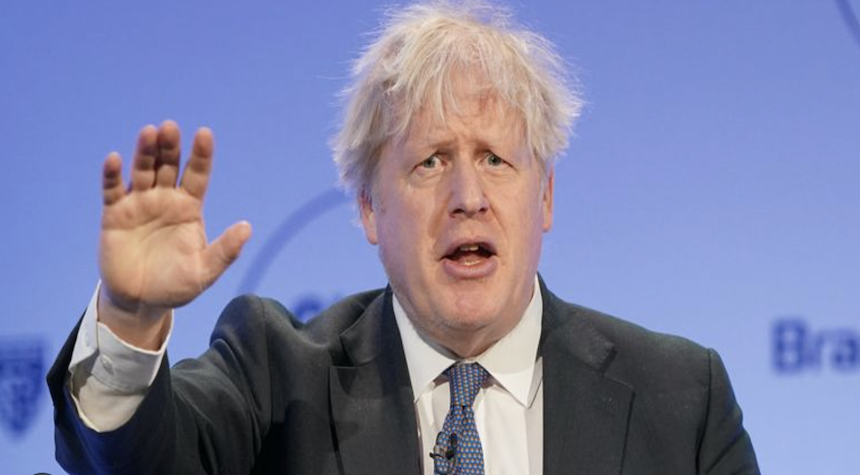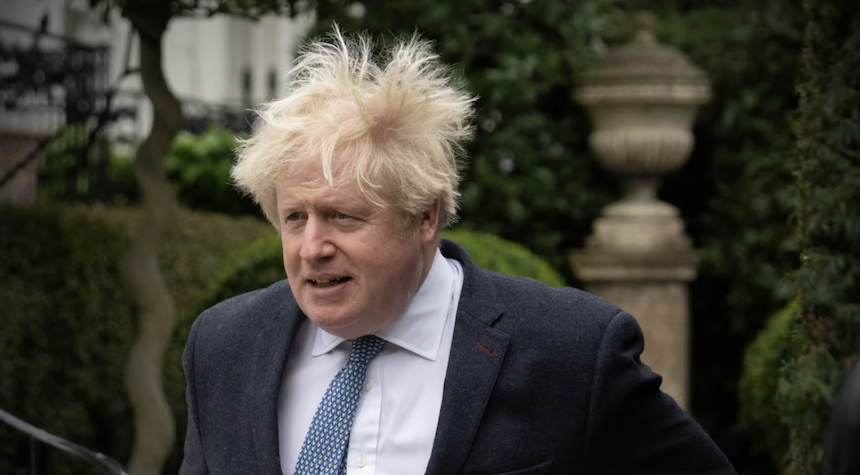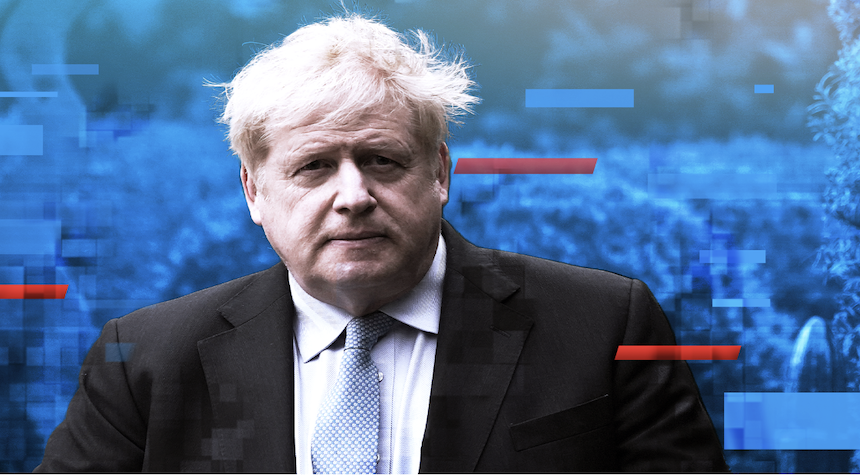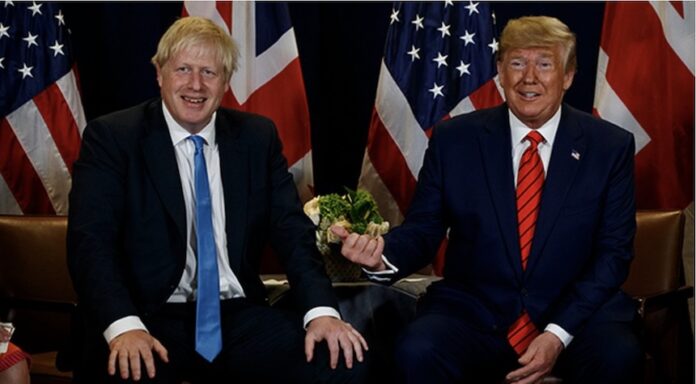A man with an interesting personal life and colorful hair was running for a high-ranking political position a few years back. He won despite making big promises, building a loyal fan base, and courting controversy at almost every turn. Detractors on both sides of the political spectrum have tried to bring him down and force him out of politics.
Do you think I’m talking to Donald Trump? Boris Johnson is the person I’m talking about.
The UK is still reeling after the shocking revelations that Johnson held lavish parties in 10 Downing Street, while the rest of the country was on COVID-19 lockdowns.

These parties and their fallout led Johnson to resign last year as Prime Minister. On Monday night, the Parliament voted him out of its lawmaking body.
Isabel Hardman, The Spectator reports that “MPs” (Members) voted by 354 to 7, in favor of the Privileges Report’s conclusion that Boris Johnson intentionally misled Parliament over party gate and that he be banned from possessing a former member’s pass.
The Telegraph reported that “Boris Johnson’s parliamentary pass will be revoked after the Commons voted to accept the findings in the report of the privileges panel into party gate.” After a five-hour Parliamentary debate, only seven Tories voted in opposition to the report. 354 MPs from all parties backed the conclusion that Johnson deliberately misled the House.
Some members of Prime Minister Rishi Sunak’s inner circle were among the 118 lawmakers who voted for the motion. Sunak, as well as a large number of Conservatives and other MPs, voted against the motion.

Katy Balls, on The Spectator’s Coffee House Shots Podcast, said it was telling that 118 Tories sat for five hours in the debate just to have their voices heard.
She said: “It’s telling that 118 Tory members of parliament, or about a third, chose to stay later than they had to in order to show their support for the Privileges committee. They might not hate Boris Johnson – I don’t think that would be right – but they are clearly upset by his conduct and how he and his staff have acted around it.”
Sunak’s and other people’s decision to abstain was also revealing. Fraser Nelson stated on the same podcast that Sunak did not vote to keep the voters in view.

He said: “Given how strong the feelings were about this, I thought it was reasonable for him to dodge it.” Sunak must keep his Tory party together. Not so much the MPs, because only a few, maybe 20-30, back Boris Johnson. But the voters. If you put a nail in Boris Johnson’s coffin it would be difficult for him to keep the Tory group together.
Jacob Rees Mogg, a Johnson-supporter and conservative voice among the Tories, gave a passionate defense of the former Prime Minister during the debate. He called the motion a deliberate attempt to “take the most unfavorable interpretation possible of Mr. Johnson’s activities” by the committee. He even went so far as to liken the committee to China’s Communist Party. However, he did not vote.
The parallels between the two are striking. It’s hard to deny that the indictment is a witch-hunt against a former President who has ruffled the feathers of the establishment. You may or may disagree with the idea that Boris Johnson held parties during COVID lockdowns. However, the motion to ban him from parliament smacks a political message.
It’s interesting to compare the political scandals of our British cousins and ourselves.


